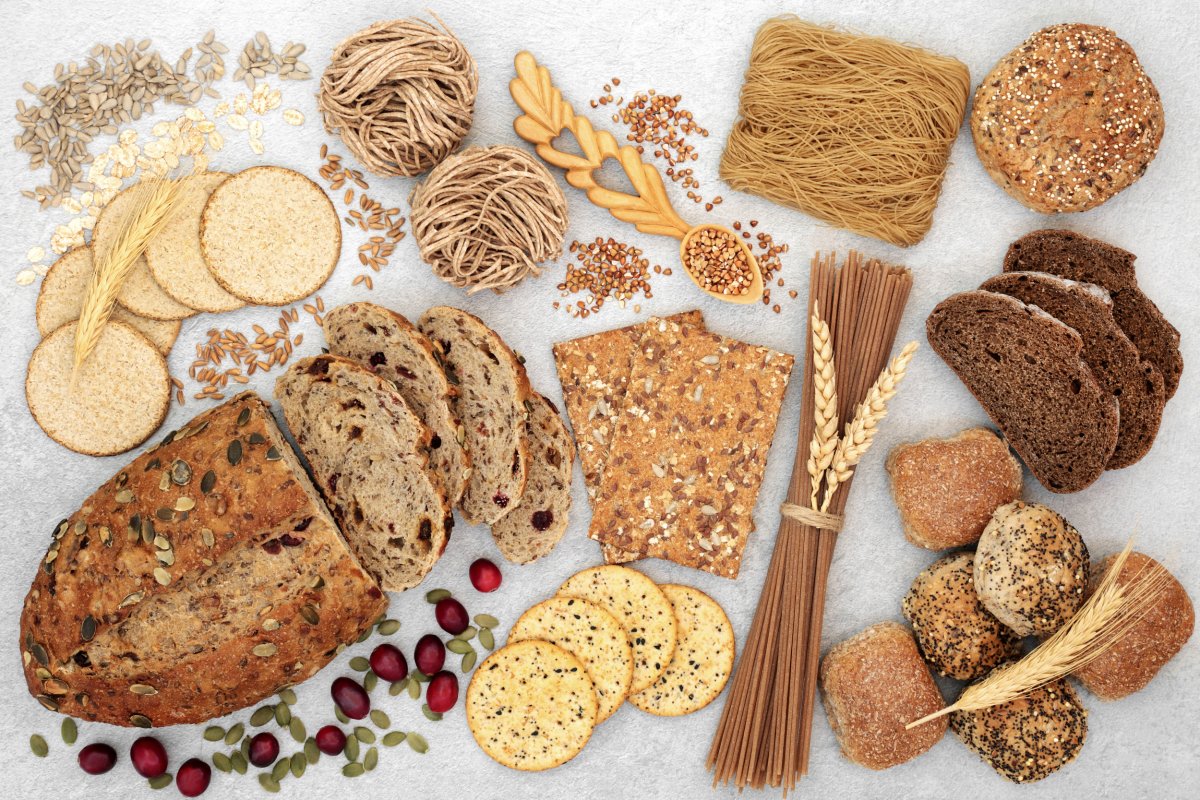In the early 2000s, it was TV cliché for a character to announce that she was going on a gluten-free diet – a sign that she had been brainwashed by fad food culture.
But now, roughly 20 percent of Americans say they’ve tried a gluten-free diet, according to the University of Nebraska—and it’s still unclear whether gluten is a net positive for our diets, or worth throwing in the trash.
Newsweek Got the opinion of five nutritionists to try to shed light on gluten: a protein found in grains, including wheat, barley and rye, and all wheat-based foods, including bread, pasta, cookies, cakes and pastries .
Nutritionist and nutritionist Kimberly Gomer seemed to be the most anti-gluten, say Newsweek: “It’s not an essential nutrient, so as a nutritionist I wouldn’t consider it healthy,” and, “The body can only benefit from removing it.”
At the other end of the spectrum, nutritionist Clemmie Oliver, from the Nutrition and Lifestyle Medicine Clinic, said: “Grain is an important part of our diet and extensive research shows that whole grain consumption is associated with a lower risk of type 2 diabetes, cardiovascular disease and stroke. , some cancers and all-cause mortality.”
All experts agreed that for the approximately 1 percent of people worldwide with celiac disease, gluten should always be avoided.
“People with celiac disease have to avoid gluten-containing foods entirely because they have an autoimmune disease where gluten is the driver of the immune response,” said gastroenterologist Dr. Debra Silberg, Senior Scientist at Beyond Celiac.
“The immune response affects the whole body and people with celiac disease can have [gut] problems such as malnutrition, diarrhoea, bloating due to inflammation of the intestines.
“Celiac disease can also lead to fatigue, depression, anxiety, brain fog and other neurological conditions.”
In the United States, another 6 percent of the population has celiac disease, according to data from the Cleveland Clinic. These people may also benefit from giving up gluten, the experts said.
“Those with gluten sensitivity who are not celiac may experience symptoms such as bloating, fatigue and joint pain when they consume gluten, even though they do not have celiac disease,” Hamilton said.
“For these individuals, removing gluten from the diet can lead to significant symptom relief.”

Marian Vejcik/Getty Images
Joffe said some people may not even realize they have an intolerance or sensitivity to gluten, so may benefit from trying a gluten-free diet.
“Anyone with negative, undiagnosed symptoms such as bloating or brain fog may benefit from completely removing gluten from their diet for a month before slowly introducing gluten-containing foods to assess for intolerance,” she said.
For those without gluten disease, or gluten intolerance or sensitivity, some of the experts still had reservations about eating foods that contain large amounts of gluten.
Hamilton said gluten can “lead to digestive problems and contribute to conditions like leaky gut” – where the intestinal wall becomes more permeable, allowing substances to pass through the blood – in some people, so he recommends eating gluten “in moderation” and pay attention to any adverse symptoms.
“For the majority, gluten can be a healthy part of their diet, providing essential nutrients and fiber…[but] excessive consumption can still potentially lead to unpleasant symptoms such as bloating,” she said.
For Joffe, whether to eat or avoid gluten was not the most important question for these people.
“The gluten in question is what matters the most,” she said. “A whole grain product, made from 100 percent whole wheat, would be a less processed and therefore less inflammatory form of gluten than an ultra-processed, sugar-filled pastry.
“The book can cause discomfort for those who normally tolerate gluten, not necessarily because of the gluten, but because of the processing of that gluten and additives. It is always better to choose whole foods or minimally processed foods whenever possible.”
Joffe also cautioned against viewing gluten-free foods as an immediate healthier alternative to gluten-containing versions.
“It’s a common misconception that gluten-free means healthy,” she said. “This is wrong and in fact the product containing gluten is less processed and healthier for those who are gluten intolerant.”
Silberg agreed, adding, “Unfortunately, in order to make gluten-free foods taste better, some have a lot of added sugar, stabilizers, and other chemicals.”
“It’s important to read labels and try to buy gluten-free foods that contain minimal additives.”
But for Gomer, one of the benefits of a gluten-free diet is the opportunity to cut out processed carbs.
She said this is especially true for the 11.6 percent of Americans with type 2 diabetes and the 38 percent of U.S. adults with prediabetes — according to the Centers for Disease Control and Prevention — who struggle to handle sugar and carbohydrates in their diet. .
“Patients, diabetics and those with insulin resistance, along with anyone trying to lose weight, can benefit from removing gluten from their diet,” Gomer said. Insulin resistance is a precursor to diabetes; insulin is the hormone that controls sugar.
“Many people have insulin resistance, and by giving up gluten, they give up large amounts of gluten-containing carbohydrates, such as cookies, cakes, breads, crackers, along with many processed foods,” she said.
“This lays the foundation for eating a diet full of protein, healthy fats, vegetables and carbohydrates as tolerated that does not contain gluten.

marilyna/Getty Images
But other groups may benefit from cutting out foods that contain gluten, too, the nutritionists said.
Oliver specializes in people with bowel conditions, including inflammatory bowel disease (IBD) and irritable bowel syndrome (IBS).
She said there is some evidence that people with IBS may see improvement in symptoms on a gluten-free diet, but that may not apply to everyone with the condition.
“Studies have suggested that it may not be removing gluten-enhancing symptoms, but following [gluten-free diet]a patient will reduce their intake of a fermentable carbohydrate called fructan,” Oliver said.
This could have similar effects to the low-FODMAP diet, she explained, which is often recommended as an IBS treatment.
For people with IBD, on the other hand, Oliver said there is “no need to avoid gluten” unless they are also diagnosed with IBS because of ongoing bowel symptoms.
Meanwhile, Hamilton mentioned that a gluten-free diet could help people with autoimmune diseases — her specialty.
“New research suggests a link between gluten and autoimmune diseases, such as Hashimoto’s thyroiditis, rheumatoid arthritis and psoriasis,” she said. “In these cases, gluten can increase inflammation and the immune response.”
“I have seen many of my clients transform their health by removing gluten from their diet when it is a factor in their condition, and other studies have shown that many individuals with autoimmune diseases report improved symptoms and less inflammation after adopting a gluten-free medication.” diet.
“While not everyone with autoimmune conditions needs to eliminate gluten, those who are sensitive to it can experience significant benefits.”
Overall, the conclusion of this group seemed to be that some people may benefit from cutting out gluten, others may not, and those who weren’t sure could always try a gluten-free diet to see if it makes a difference to their well-being.
Do you have a tip for a food story that Newsweek should be covering? Are there nutritional concerns that worry you? Let us know through science@newsweek.com. We can seek advice from experts and your story could be featured Newsweek.
#give #gluten #Heres #nutritionists